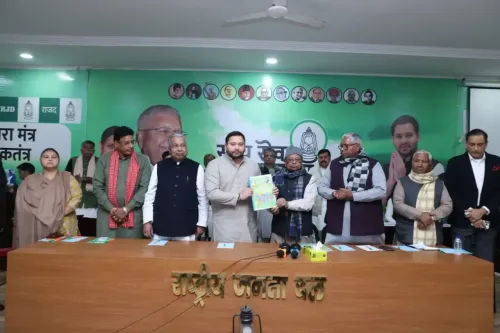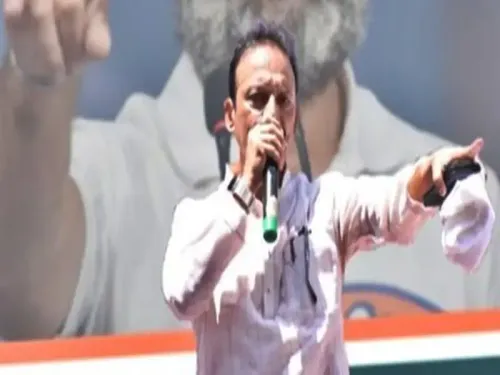How are Farmers Supporting PM Modi Amidst US Tariff Pressure?

Synopsis
Key Takeaways
- Farmers are united in support of PM Modi.
- Current U.S. tariffs are seen as a challenge to national sovereignty.
- Farmers prioritize domestic resilience over global appeasement.
- Leadership trust is essential for overcoming economic pressures.
- Historical resilience among farmers is a source of strength.
Amravati, Aug 7 (NationPress) The agricultural community in India is uniting in support of Prime Minister Narendra Modi following his emphatic statement that India will always prioritize the interests of its farmers, despite increasing tensions with the United States concerning trade and energy directives.
In a significant escalation, the U.S. government recently levied a hefty 50% tariff on Indian exports, citing India’s ongoing acquisition of discounted crude oil from Russia. This development has raised alarms across various sectors. Nevertheless, farmers from regions such as Maharashtra, Madhya Pradesh, Rajasthan, and Punjab are resolutely backing the government's position — even if it entails short-term financial hurdles.
During an agricultural summit in New Delhi on Thursday, PM Modi refrained from naming the U.S. but made his stance unmistakably clear: “I will never compromise on the interests of farmers, livestock owners, and fishermen. I understand that I might face significant personal consequences - but I am prepared for it.”
This declaration has struck a chord with grassroots farmers, many of whom perceive the current diplomatic standoff not merely as a trade conflict but as a testament to India’s sovereignty and the strength of its agricultural sector.
“We are no longer reliant or desperate,” stated Shashank Deshpande, a farmer from Amravati. “Even if there is some loss due to these tariffs, we take pride in standing with our nation. Our Prime Minister is doing what’s best for us.”
Another farmer, Shirish Gaonkar, remarked, “India is now capable of self-sufficiency. We will not yield to external pressure. This issue transcends economics — it’s about national pride.”
While the U.S. tariffs may affect certain export-oriented industries, many members of India’s agricultural sector view this situation as a chance to enhance domestic production capabilities and foster regional trade.
Farmers contend that their strength does not lie in appeasing foreign powers but in supporting a government that has consistently championed their cause.
“We’ve faced adversities before - droughts, floods, crop failures - but we’ve persevered. This challenge is no different. What matters is that our government stands with us, and we shall reciprocate,” asserted Gaonkar.










